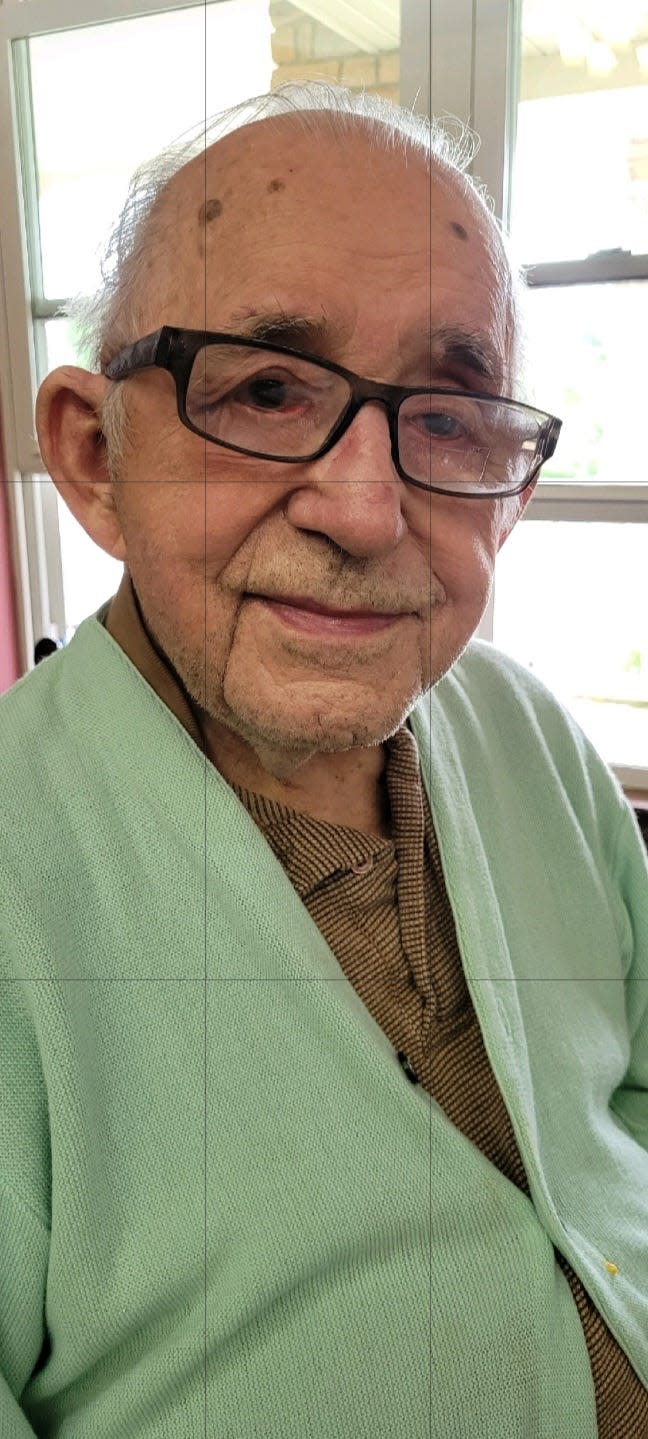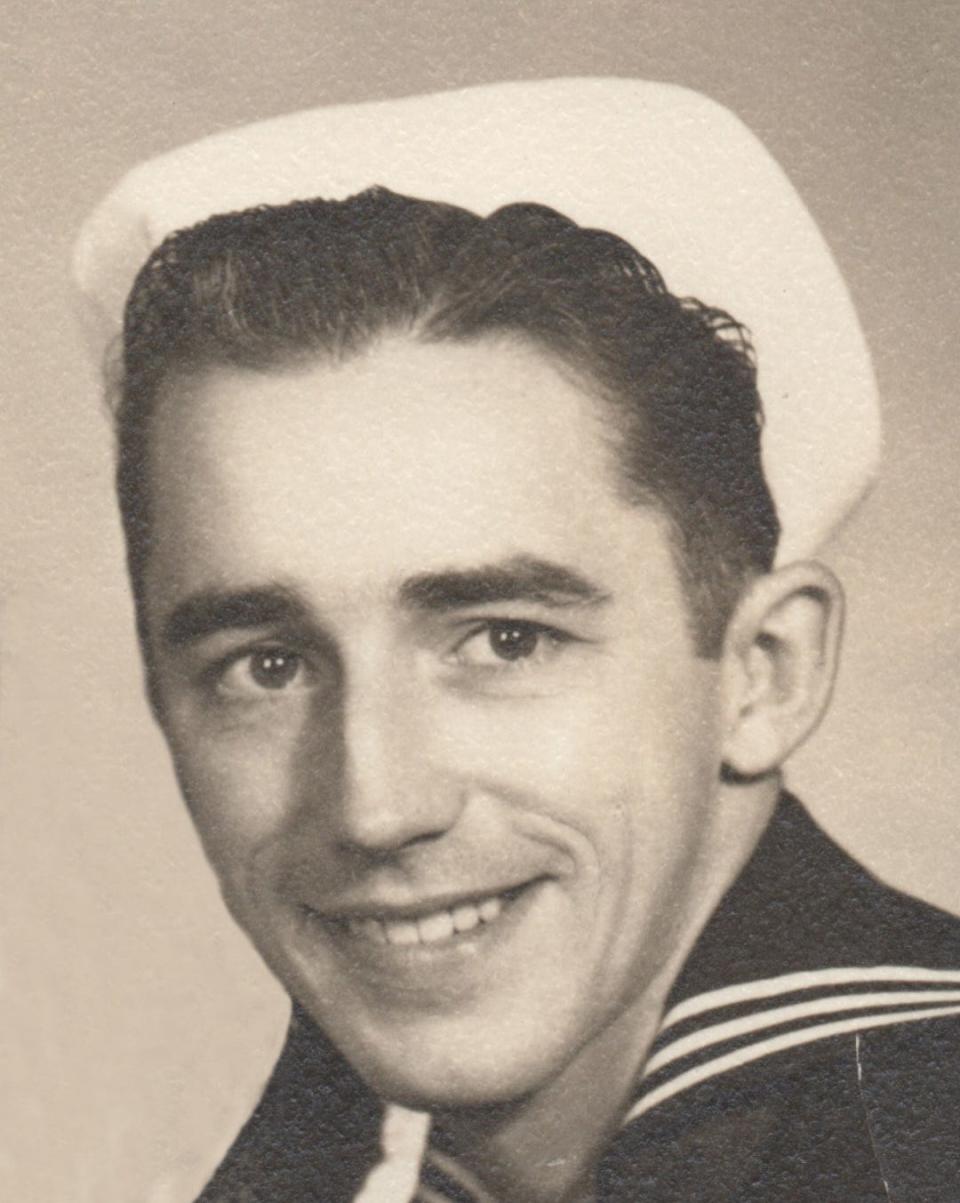THIS WEEK'S PERSONALITY: World War II Coast Guard veteran tells his story

LOUDONVILLE - In this column over the years the experiences of a number of World War II veterans, in the Army, Navy and Marines, has been told.
PREVIOUS WEEK'S PERSONALITIES: Roblins bring AU theater skills to Mohican Players
This is a new angle. It is the story of Darvin Hartzell, who served in the U.S. Coast Guard during World War II. Today Hartzell lives in McMullen Assisted Care in Loudonville. He came here a year ago from Arkansas to be near his son, Brian Hartzell.
He will celebrate his 99th birthday tomorrow, June 14.
Hartzell grew up in Nazareth, Pennsylvania, about 60 miles north of Philadelphia, and graduated from high school in June of 1942, shortly after World War II began.
His intention, as the war continued, was to join the U.S. Navy. He took the drive south to Philadelphia to enlist, but was daunted by long lines at the Navy recruitment office. There were shorter lines across the street, at the Coast Guard office, so he went in.
Encouraged by the recruitment officer, he tore up his Navy enlistment forms and joined the Coast Guard on Oct. 1, 1942.

His enlistment was derailed a month later, during his recruit training, when he was afflicted with pneumonia that kept him on sick leave, much of the time in the hospital, until Jan. 5, 1943.
After basic, he was assigned to do shore patrol, mainly watching for ships from the beaches in North Carolina, “but I didn’t want to do that. Instead, I was assigned aboard the Coast Guard Cutter Mistletoe, first working as a fireman fueling the ship from its lower holds, and ending up on the bridge steering the vessel,” said Hartzell, who for 99 is pretty sharp and lucid.
“We patrolled the same waters for nearly two years, starting in Washington, D.C., up the Chesapeake Bay north and then through a canal to the Atlantic, then down the coast to Norfolk, Virginia, and back to Washington,” he said. “In my two years, we never encountered any enemy invaders, though we once discovered a downed British airplane, and extracted three victims, all deceased, from it. That was a very sad day.”
Hartzell: Coast Guard operated a fleet of very different ships during World War II
He said the Coast Guard operated a fleet of very different ships, from very small and slow to fast. “Mine was larger, 179 feet long with a crew of 79, but not so fast. It was built in 1939, so it was pretty new, but it was decommissioned right after the war.”
He spent his last few months going to radio school, and was destined to become a radio operator on a Coast Guard ship in the Pacific Theater, but the war ended before that happened, two months prior to when his orders would have sent him to the Pacific and possibly the invasion of Japan.
Hartzell noted that not a lot of people understand the role of the Coast Guard during World War II. They didn’t just guard coastal waters and assist with shipping, but also prevented Nazi submarines from sailing into American harbors. In the Pacific Theatre, they piloted much of the landing craft used.
Hartzell returned to Nazareth after the war with a total of two years, 10 months and 25 days of active service in the Coast Guard.
After working in a cement plant for a while he went to refrigeration school in Cleveland on the GI Bill, but was blocked in employment in that field because of Union rules.
While interviewing for a position with the Ramsey-Bennett Co. in Cleveland, which sold air conditioning and refrigeration systems, he made a good impression with the owner who hired him as an office worker in the accounting department.
There the company’s chief accountant suggested he get more education, and he took evening classes at Western Reserve University, until he was confident enough to take the state exam to become a CPA.
Worked most of his accounting career serving Cleveland-area clients
When Ramsey-Bennett went out of business, he was hired for a basic accounting position at Brubaker, Helfrich and Taylor, and when he passed the CPA exam, he was named one of 26 partners in the, and worked most of his career serving Cleveland-area clients.
He raised two sons, Brian, now 73 and in Loudonville, and Eric, 62, in Columbus.
After retiring he moved out west, first to Phoenix and later Prescott, Arizona, from 1985 until the late 1990s, and then to Arkansas until last year, when he moved to McMullen Assisted Care.
He had a unique avocation much of his lifetime, first for ice skating and then to the unusual sport of curling, actually competing as a curler in Canada for a time. He enjoyed watching the curling competition on the Winter Olympics earlier this year.
He also bowled, though not nearly as well as he skated, averaging about 140, and he collected stamps.
This article originally appeared on Ashland Times Gazette: THIS WEEK'S PERSONALITY: WWII Coast Guard veteran tells his story

